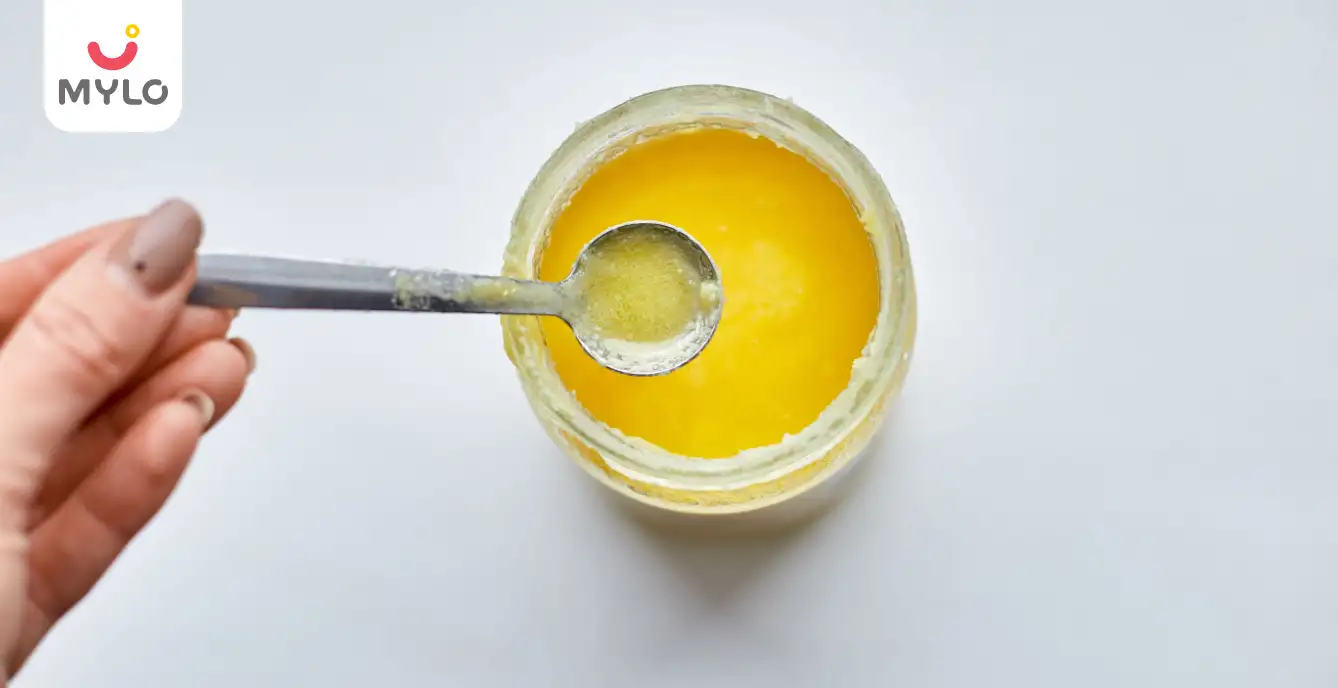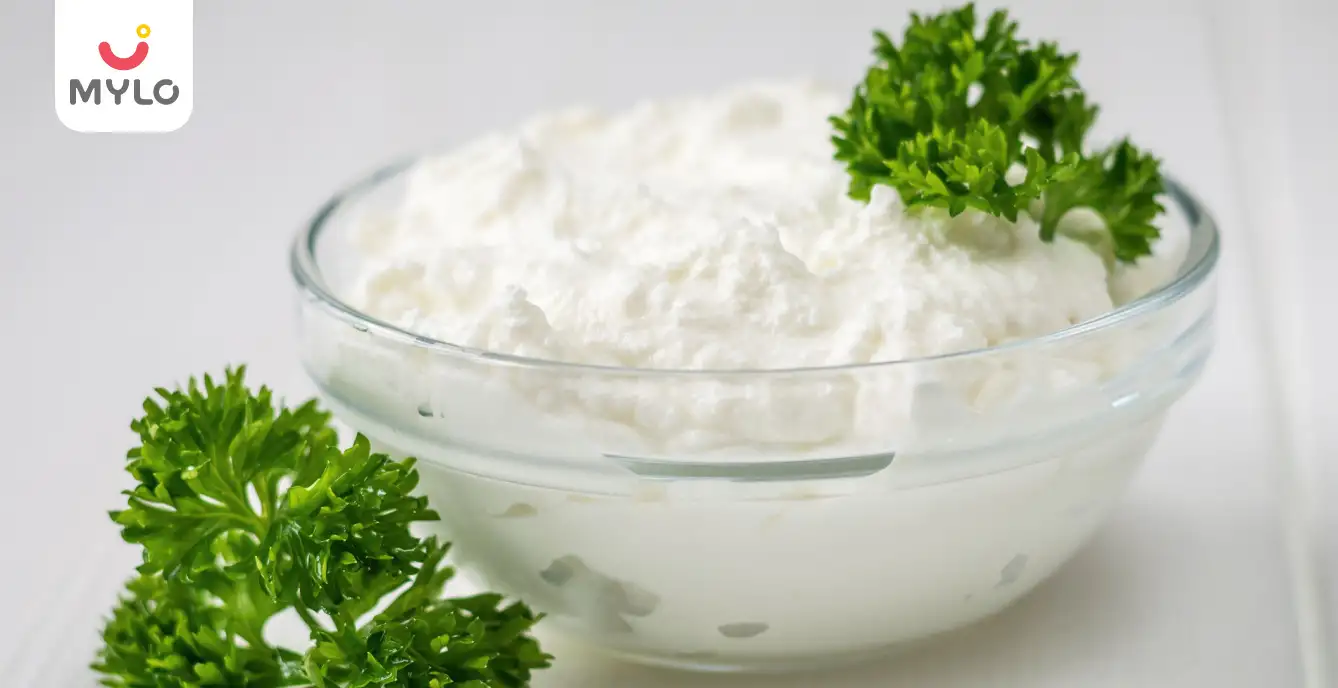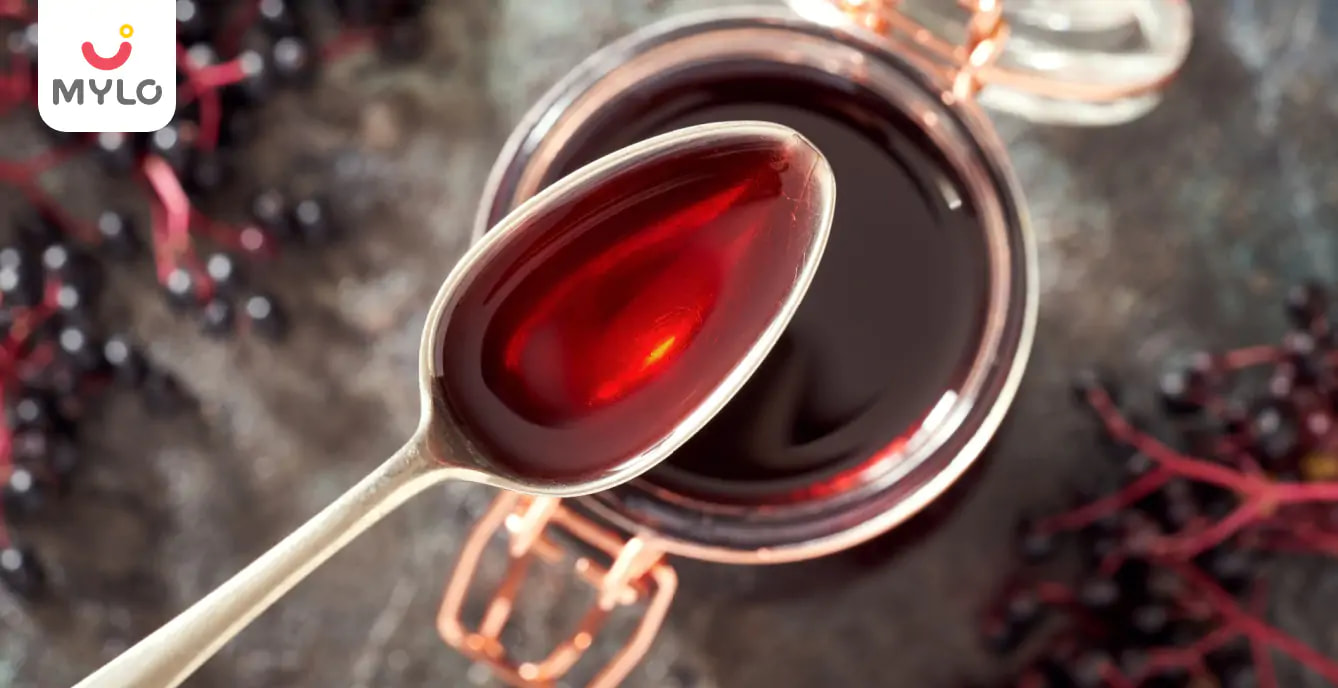Get MYLO APP
Install Mylo app Now and unlock new features
💰 Extra 20% OFF on 1st purchase
🥗 Get Diet Chart for your little one
📈 Track your baby’s growth
👩⚕️ Get daily tips

OR


Article Continues below advertisement
- Home

- PCOS & PCOD

- The Ultimate Guide to Using Ashokarishta for PCOS
In this Article
- What is the Relation Between Ashokarishta and PCOS?
- What are Some Common Ashokarishta Benefits for PCOS?
- 1. Regulates Menstrual Cycles
- 2. Reduces Excessive Hair Growth
- 3. Improves Hormonal Balance
- 4. Reduces Inflammation
- 5. Supports Emotional Well-being
- What is the Recommended Ashokarishta Dosage for PCOS?
- Tips to Keep in Mind While Consuming Ashokarishta for PCOS
- 1. Consult an Ayurvedic Practitioner
- 2. Follow a Healthy Lifestyle
- 3. Be Patient
- 4. Monitor Side Effects
- 5. Combine with Other Ayurvedic Remedies
- Alternative Herbs for PCOS
- 1. Shatavari
- 2. Lodhra
- 3. Guduchi
- 4. Gokshura
- 5. Ashwagandha
- Final Thoughts
PCOS & PCOD
 2263
2263The Ultimate Guide to Using Ashokarishta for PCOS
Updated on 26 September 2023
PCOS, or Polycystic Ovary Syndrome, is a common hormonal disorder that affects many women worldwide. While there is no cure for PCOS, there are several natural remedies that can help manage its symptoms. One such remedy is using Ashokarishta for PCOS. In this article, we will explore the relation between Ashokarishta and PCOS, its benefits, Ashokarishta dosage for PCOS, tips for consumption, and alternative herbs that can complement its effects.
What is the Relation Between Ashokarishta and PCOS?
Ashokarishta is an Ayurvedic tonic primarily used to treat gynecological disorders. It is formulated using a combination of potent herbs, with the key ingredient being Ashoka bark. Ashoka bark has been used for centuries in Ayurvedic medicine to regulate menstrual cycles, reduce inflammation, and improve hormonal balance. These properties make it an effective remedy for managing PCOS symptoms.
PCOS is primarily caused by an imbalance in sex hormones, particularly an excess of androgens (male hormones) such as testosterone. Ashokarishta helps regulate these hormone levels, thereby alleviating symptoms like irregular periods, excessive hair growth, and acne. Additionally, it has anti-inflammatory and analgesic properties, which can help reduce pain and inflammation associated with PCOS.
Article continues below advertisment
You may also like : Beetroot for PCOS: Discovering a Natural Approach to Managing Symptoms
What are Some Common Ashokarishta Benefits for PCOS?
Let us now understand some benefits of using Ashokarishta in relation to PCOS:
1. Regulates Menstrual Cycles
One of the hallmark symptoms of PCOS is irregular periods. Ashokarishta helps regulate the menstrual cycle by balancing hormone levels and stimulating the uterus. This regularity can also improve fertility in women with PCOS.
2. Reduces Excessive Hair Growth
Excessive hair growth, known as hirsutism, is a common symptom of PCOS. Ashokarishta has anti-androgenic properties, meaning it helps reduce the levels of male hormones responsible for this condition. Regular consumption of Ashokarishta can lead to a reduction in unwanted hair growth over time.
3. Improves Hormonal Balance
Hormonal imbalances are at the core of PCOS. Ashokarishta helps restore hormonal balance by regulating the levels of estrogen, progesterone, and testosterone. This can alleviate several symptoms associated with PCOS, such as mood swings and weight gain.
Article continues below advertisment
4. Reduces Inflammation
Inflammation is often present in women with PCOS and can contribute to insulin resistance and weight gain. Ashokarishta has anti-inflammatory properties that can help reduce inflammation and improve insulin sensitivity.
5. Supports Emotional Well-being
PCOS can take a toll on a woman's emotional well-being, leading to anxiety, depression, and low self-esteem. Ashokarishta has a calming effect on the nervous system and can help alleviate these emotional symptoms, promoting an overall sense of well-being.
You may also like : Intermittent Fasting & PCOS: The Ultimate Guide to Benefits, Risks and Precautions
What is the Recommended Ashokarishta Dosage for PCOS?
The recommended dosage of Ashokarishta varies depending on the severity of PCOS symptoms and individual constitution. Generally, it is advised to take 15 to 30 ml of Ashokarishta twice daily after meals. However, it is crucial to consult an Ayurvedic practitioner or healthcare professional before starting any new medication or supplement.
It is worth noting that Ashokarishta is a potent herbal formulation and should not be self-prescribed or used without proper guidance. Ayurvedic practitioners consider various factors such as age, body type, and medical history before prescribing Ashokarishta. Following the recommended dosage and guidelines ensures safe and effective use.
Article continues below advertisment
Tips to Keep in Mind While Consuming Ashokarishta for PCOS
Let us now understand some tips that women suffering from PCOS should keep in mind while consuming Ashokarishta:
1. Consult an Ayurvedic Practitioner
As mentioned earlier, it is crucial to seek guidance from an Ayurvedic practitioner or healthcare professional before consuming Ashokarishta. They can evaluate your condition, recommend the appropriate dosage, and monitor your progress.
2. Follow a Healthy Lifestyle
While Ashokarishta can help manage PCOS symptoms, it is essential to adopt a healthy lifestyle alongside its consumption. This includes maintaining a balanced diet, regular exercise, managing stress levels, and getting adequate sleep.
3. Be Patient
Ayurvedic remedies work holistically and may take time to show results. It is important to be patient and consistent with Ashokarishta consumption. Results may vary depending on individual factors, and it may take several weeks or months to experience significant improvements.
4. Monitor Side Effects
Although rare, some individuals may experience mild side effects such as gastric discomfort or allergic reactions while consuming Ashokarishta. If you experience any adverse effects, it is advisable to discontinue its use and consult your healthcare provider.
Article continues below advertisment
5. Combine with Other Ayurvedic Remedies
Ashokarishta can be complemented with other Ayurvedic herbs and remedies to enhance its effects. Some herbs that are often used in combination with Ashokarishta include Shatavari, Lodhra, Guduchi, and Gokshura. However, it is crucial to consult an Ayurvedic practitioner before combining herbs to ensure compatibility and safety.
You may also like : PCOS Pain: The Ultimate Guide to Causes and Effective Management
Alternative Herbs for PCOS
While there are several Ashokarishta benefits for PCOS, there are several other herbs that can provide complementary benefits. These herbs can be used alongside Ashokarishta or as standalone remedies to support hormonal balance and alleviate PCOS symptoms. Here are five alternative herbs for PCOS:
1. Shatavari
Shatavari is a rejuvenating herb known for its hormone-balancing properties. It helps regulate menstrual cycles, reduce inflammation, and improve fertility. Shatavari can be consumed in powder or capsule form.
Read more about : Shatavari
Article continues below advertisment
2. Lodhra
Lodhra is a potent herb that helps regulate hormonal imbalances and reduce excessive bleeding during periods. It also has anti-inflammatory and antioxidant properties that support overall gynecological health.
3. Guduchi
Guduchi, also known as Giloy, is an immune-boosting herb that helps reduce inflammation and improves insulin sensitivity. It can be consumed in the form of powder, capsules, or as a decoction.
4. Gokshura
Gokshura is a herb commonly used to improve reproductive health in both men and women. It helps regulate hormone levels, reduce inflammation, and enhance fertility. Gokshura can be consumed in powder or capsule form.
5. Ashwagandha
Ashwagandha is an adaptogenic herb that helps manage stress and balance hormone levels. It has antioxidant and anti-inflammatory properties that can alleviate PCOS symptoms. Ashwagandha is available in powder, capsule, or liquid extract form.
Read more about : Ashwagandha
Article continues below advertisment
Final Thoughts
Ashokarishta for PCOS can be a valuable Ayurvedic remedy. Its ability to regulate menstrual cycles, reduce excessive hair growth, improve hormonal balance, reduce inflammation, and support emotional well-being makes it an excellent choice for women with PCOS. However, it is essential to consult an Ayurvedic practitioner or healthcare professional before incorporating Ashokarishta into your routine.
References
1. Dayani Siriwardene SA, Karunathilaka LP, Kodituwakku ND, Karunarathne YA. (2010). Clinical efficacy of Ayurveda treatment regimen on Subfertility with Poly Cystic Ovarian Syndrome (PCOS).
2. Moini Jazani A, Nasimi Doost Azgomi H, Nasimi Doost Azgomi A, Nasimi Doost Azgomi R. (2019). A comprehensive review of clinical studies with herbal medicine on polycystic ovary syndrome (PCOS). Daru.
Article continues below advertisment



Written by
Anandita Sharma
Drawing on more than a decade of expertise in administration, Anandita Sharma currently serves as a content operations e
Read MoreGet baby's diet chart, and growth tips

Related Articles
Related Questions
Hello frnds..still no pain...doctor said head fix nhi hua hai..bt vagina me pain hai aur back pain bhi... anyone having same issues??
721 views
Kon kon c chije aisi hai jo pregnancy mei gas acidity jalan karti hain... Koi btayega plz bcz mujhe aksar khane ke baad hi samagh aata hai ki is chij se gas acidity jalan ho gyi hai. Please share your knowledge
749 views
I am 13 week pregnancy. Anyone having Storione-xt tablet. It better to have morning or night ???
737 views
Hlo to be moms....i hv a query...in my 9.5 wk i feel body joint pain like in ankle, knee, wrist, shoulder, toes....pain intensity is high...i cnt sleep....what should i do pls help....cn i cosult my doc.
751 views
Influenza and boostrix injection kisiko laga hai kya 8 month pregnancy me and q lagta hai ye plz reply me
763 views
RECENTLY PUBLISHED ARTICLES
our most recent articles

PCOS & PCOD
PCOS Pain: The Ultimate Guide to Causes and Effective Management
(358 Views)

Leisure
10 Best Mystery Books to Read in 2023
(4,033 Views)

Books
10 Best Non-Fiction Books to Read in 2023
(3,530 Views)

PCOS & PCOD
Is Ghee Good for PCOS: The Ultimate Guide to Benefits and Ways to Consume
(3,642 Views)

PCOS & PCOD
Is Curd Good for PCOS: The Ultimate Guide to Debunking Myths and Discovering Benefits
(1,161 Views)

Diet & Nutrition
Dark Chocolate for PCOS: Unlocking the Potential of a Guilt-Free Indulgence
(912 Views)
- Beetroot for PCOS: Discovering a Natural Approach to Managing Symptoms
- Soy for PCOS: Should You Eat it or Avoid It?
- Cinnamon for PCOS: Discovering the Natural Support You've Been Missing
- When Do Babies Start Walking?
- The Ultimate Guide to 4th Month Pregnancy Symptoms
- Your Guide to 2 Months Pregnant Symptoms: What to Expect
- The Ultimate Balanced Diet Chart: Your Guide to Optimal Nutrition
- Mundan Ceremony: A New Parent's Guide to Customs, Traditions and Celebrations
- Dates for PCOS: How to Harness their Health Benefits
- Coconut Water for PCOS: Discovering the Natural Support You've Been Missing
- Everything You Need to Know About the Length of Vagina
- Herbs for Male Fertility: Exploring Herbal Solutions for Male Reproductive Health
- Is Banana Good for PCOS: A Comprehensive Guide to Understanding Their Relationship
- Flax Seeds for PCOS: How This Superfood Can Improve Symptoms


AWARDS AND RECOGNITION
Mylo wins Forbes D2C Disruptor award
Mylo wins The Economic Times Promising Brands 2022
AS SEEN IN
















At Mylo, we help young parents raise happy and healthy families with our innovative new-age solutions:
- Mylo Care: Effective and science-backed personal care and wellness solutions for a joyful you.
- Mylo Baby: Science-backed, gentle and effective personal care & hygiene range for your little one.
- Mylo Community: Trusted and empathetic community of 10mn+ parents and experts.
Product Categories
baby carrier | baby soap | baby wipes | stretch marks cream | baby cream | baby shampoo | baby massage oil | baby hair oil | stretch marks oil | baby body wash | baby powder | baby lotion | diaper rash cream | newborn diapers | teether | baby kajal | baby diapers | cloth diapers |







